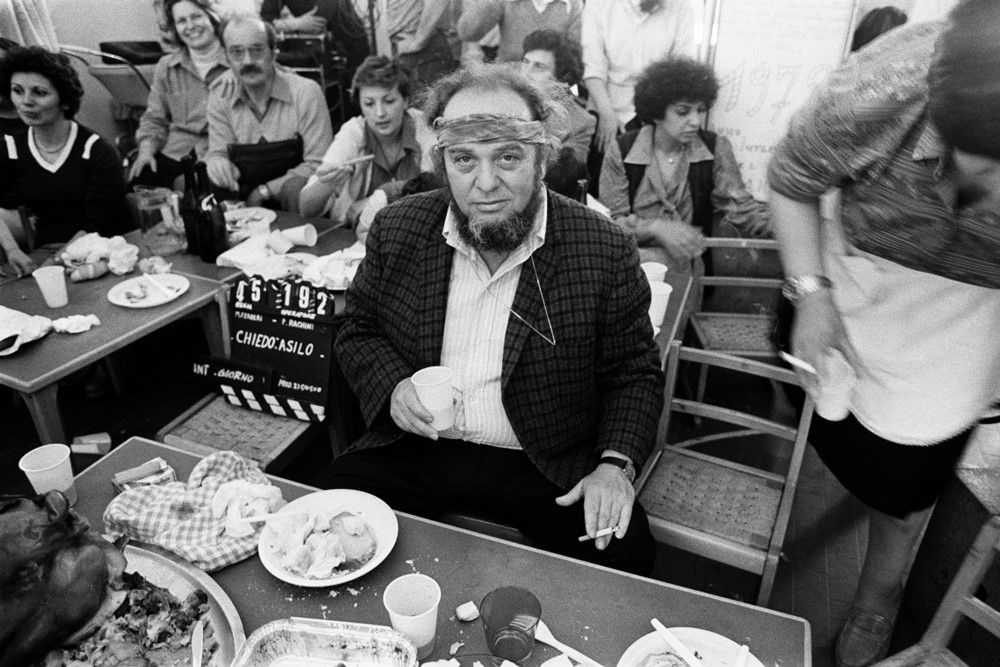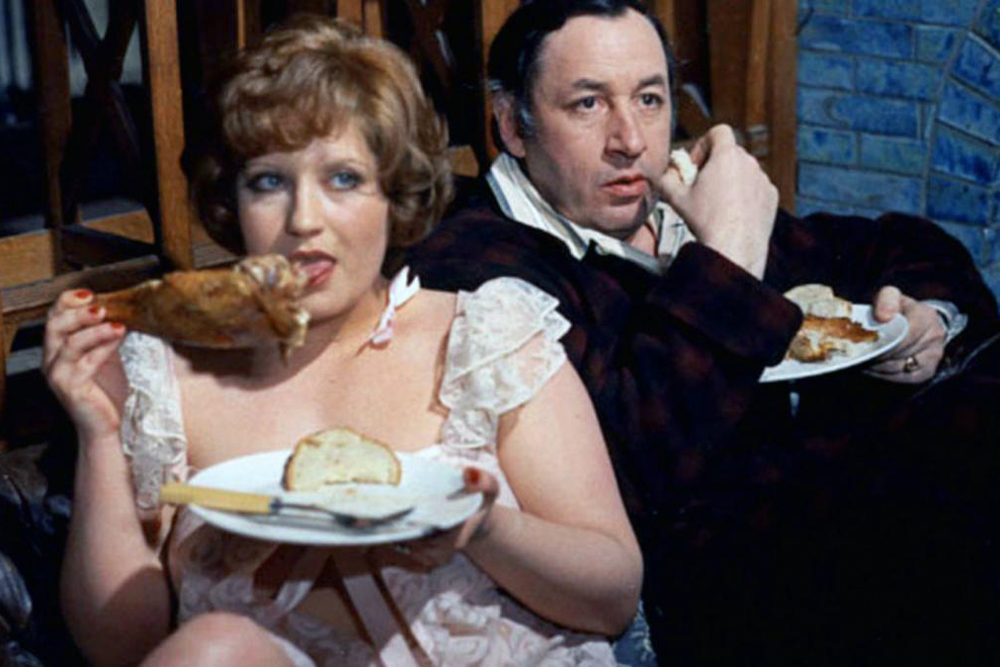Marco Ferreri

Biography
Italian screenwriter, actor and director. From the very beginning of his life, he was interested in film, but until the late 1950s he remained in the role of a collaborator on film. Initially, he writes screenplays and occasionally plays [the roles he will play will remain the most prominent in Pasolini's Pigsty (Porcile, 1969)]. Things change in 1958 when, in Spain, in which it was said that he was selling cinema equipment, he films the title The Little Apartment (El pisito) according to a script written in collaboration with the writer Rafael Azcon, who has since been his main film contributor. In that country, he directed two feature films - Los chicos (1959) and The Little Coach (El cochecito, 1960) - in which he clearly outlines his tendency to erode the realistic narrative with the grotesque, followed by relentless mockery of institutions, customs and inclinations of small-town society, which is why he had problems with censorship from the beginning.
In the 1960s, he returned to Italy to make dark comedy films - The Conjugal Bed (Una storia moderna: l'ape regina, 1963), The Ape Woman (La donna scimmia, 1964) and Her Harem (L'Harem, 1967). - which provoke and baffle the audience individually and entertain criticism, so his films generally repeat financial setbacks and achieve success at film festivals (Marini Vlady Award for Best Actress in The Conjugal Bed). With the titles Dillinger is Dead (Dillinger è morto, 1969), The Seed Of Men (Il seme dell'uomo, 1969), Audience (L'udienza, 1971) and Liza (1971) Ferreri further sharpens his critique of society through the dark and absurd depictions of the vanity of individuals with no exit from their own state of mind, attracting the attention of international critics and at the same time opening up the possibility of working in France, filming since then mostly in Italian-French co-production. With his next film, The Grande Bouffe, (La grande bouffe, 1973.), he achieved the greatest commercial success, while The Last Woman (La dernière femme, 1976), Bye Bye Monkey, (Rêve de singe, 1978), Tales of Ordinary Madness (1981) and the The Story of Piera (La storia di Piera, 1983), which won the Cannes Best Actress Award to Hanna Schygulli the same year, are also praised.
Other titles include his biggest leap into political film, Don't Touch The White Woman! (Touche pas à la femme blanche, 1974), in which the director with radical left-wing views, deconstructs the western genre through General Custer's personality and reconstructs the Battle of Little Bighorne. The film was largely filmed in the excavations of a Parisian construction site, which in those years was undergoing a transformation from the central city market (Les Halle) to a colossal supermarket (Forum des Halles).
Of significant acclaims, Ferreri received the Silver Bear for the movie Seeking Asylum (Chiedo asilo, 1979), starring Roberto Benigni, in 1980 at the Berlinale, and in 1991 at the same festival the film The House of Smiles (La casa del sorriso) is awarded with The Golden Bear.
He remains remembered as one of the most controversial Italian directors, which is not easy to achieve in Italian cinema.
Films
Veliko žderanje
La Grande bouffe, Francuska, Italija, 1973., feature film
Grupa muškaraca odlazi u vilu gdje odlučuju jesti do smrti. Radnja ovog filma je bizarno jednostavna: četvorica sredovječnih prijatelja, koje glume česti Ferrerijevi suradnici, pilot Marcello (Mastroianni), TV producent Michel (Piccoli), vlasnik restorana i kuhar Ugo (Tognazzi) → more
